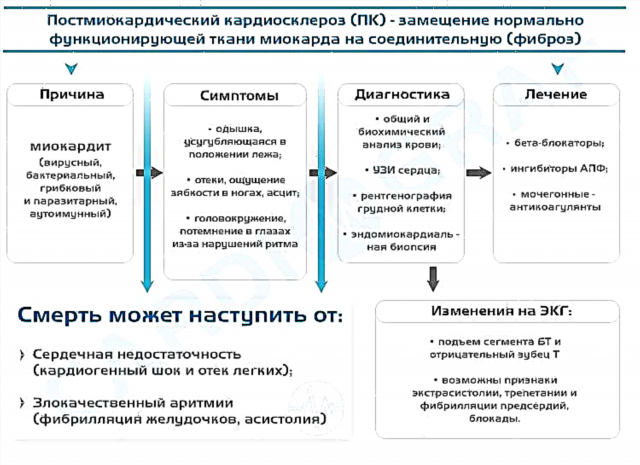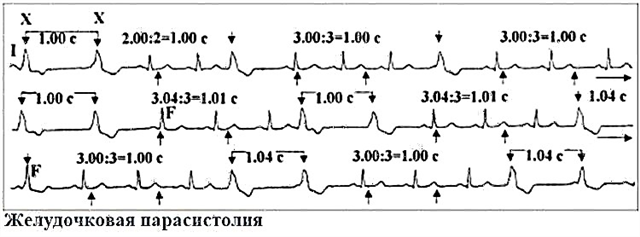When suddenly a child begins to sneeze, and transparent snot is flying out of his nose, you should not immediately start worrying. This is not always a symptom of the disease, especially if sneezing is not accompanied by a rise in body temperature, coughing and other unpleasant symptoms. Most likely, dust or other irritant got into the nose and, by sneezing several times, the child will get rid of it. You need to be wary and treat if sneezing is repeated often or lasts a long time.
Sneezing reflex: causes
 Sneezing is an unconditioned protective reflex that nature has endowed us with. When an irritant enters the nasal passages, the body tries to push it out with the help of a sharp muscle contraction, from which air flies out and carries with it snot, saliva and "uninvited guests" lurking in them. An interesting fact is that when sneezing, liquid secretions can fly up to 5 meters, and their initial speed is up to 160 km / h.
Sneezing is an unconditioned protective reflex that nature has endowed us with. When an irritant enters the nasal passages, the body tries to push it out with the help of a sharp muscle contraction, from which air flies out and carries with it snot, saliva and "uninvited guests" lurking in them. An interesting fact is that when sneezing, liquid secretions can fly up to 5 meters, and their initial speed is up to 160 km / h.
An equally important protective barrier is snot, which instantly appears as soon as the baby starts sneezing or coughing. A runny nose stops particles of dust and dirt, taking them out. And in the composition of the mucous secretions there are special cells that can withstand the infection that has got into the child's nose.
There may be several reasons why a child sneezes:
- manifestation of an allergic reaction to a familiar or new allergen: pollen, odors, pet, dust, tobacco smoke, household chemicals, etc.;
- hypothermia, especially in young children, which is usually accompanied by a severe runny nose, when snot runs like water;
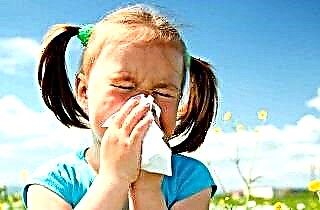 a respiratory infection that causes irritation and inflammation of the mucous membranes, fever, severe snot and other accompanying symptoms;
a respiratory infection that causes irritation and inflammation of the mucous membranes, fever, severe snot and other accompanying symptoms;- dry air in the room - causes thickening of the transparent mucus secreted by the nose, when it gets on, dust particles from the air adhere and cause irritation and sneezing;
- very bright light - the child sneezes from it, as the mucous membranes of the eyes are irritated, and they are associated with the nasal mucosa.
In babies in the first month of life, sneezing and snot may not be associated with external causes at all. Thus, their nose is reflexively cleared of intrauterine mucus.
Older babies often sneeze during feeding, as with intense sucking, breast milk can enter the ear through a too short Eustachian tube. This is not scary, breast milk cannot harm the baby and only a very small amount is ingested.
Home treatment
As you can see, if a child's sneezing and runny nose has non-infectious causes, it does not need to be treated. And if he sneezes often, then you need to pay attention to the preventive measures, which we will discuss below. But if the baby sneezes constantly, and transparent abundant snot flows from the nose, something needs to be done.
 If parents find out that sneezing in a child is of an allergic nature, then before starting treatment, the allergens must be eliminated. Allergy is indicated by such additional symptoms as profuse salivation, a clear runny nose, swelling of the mucous membranes, and possible skin rashes. At the same time, there is no increase in temperature or it is extremely insignificant.
If parents find out that sneezing in a child is of an allergic nature, then before starting treatment, the allergens must be eliminated. Allergy is indicated by such additional symptoms as profuse salivation, a clear runny nose, swelling of the mucous membranes, and possible skin rashes. At the same time, there is no increase in temperature or it is extremely insignificant.
Allergic rhinitis and sneezing are not treated with folk methods - antihistamines are needed here. But as a prophylactic agent for a child, especially infants, ordinary dill water can be used (pour 1 tsp into a glass of water and insist for 1-2 hours), drink which to give up to three times a day, 100 ml. At the same time, she will relieve the baby from intestinal colic.
If a child has a cold or still "caught" an infection, you should also not immediately give him pills. For starters, it's best to try home remedies:
- Steam inhalation with herbal decoctions or with essential oils. If you don't have a special inhaler at hand, then you can use a small container of water, over which to sit the baby and cover his head with a towel. Breathe for 10-15 minutes and then put him in a warm bed. Best herbs for inhalation: chamomile, sage, coltsfoot, eucalyptus. Or add 5-6 drops of essential oil of these plants or conifers to clean water.
 Herbal baths (for feet or whole body). Can be done only if the child does not have a temperature or it does not exceed 37 0C. First you need to prepare the main broth. Birch leaves, calendula, sage, yarrow, celandine are suitable for him. Pour half a glass of dry leaves with a liter of boiling water in a thermos and leave for 2 hours. Strain and add to the bath, in which the child should lie down for 10-15 minutes. At the same time, he will breathe herbal fumes. After the bath, you can give him a drink of warm milk and put him to bed.
Herbal baths (for feet or whole body). Can be done only if the child does not have a temperature or it does not exceed 37 0C. First you need to prepare the main broth. Birch leaves, calendula, sage, yarrow, celandine are suitable for him. Pour half a glass of dry leaves with a liter of boiling water in a thermos and leave for 2 hours. Strain and add to the bath, in which the child should lie down for 10-15 minutes. At the same time, he will breathe herbal fumes. After the bath, you can give him a drink of warm milk and put him to bed.- Warming rubbing. The same can be done in the absence of a high temperature. You can use sunflower oil, olive oil, or melted interior fat as a base oil. Add camphor oil or a small amount of essential oil to it: mint, eucalyptus, fir, lavender. Gently rub the baby's chest with gentle movements, cover with a warm towel, cover with a blanket and put to bed. If he sweats a lot, be sure to change his clothes.
The baby's nose can be dripped with breast milk. And for an older child - beet or carrot juice. But you need to remember that if the runny nose does not go away within a few days, and the child continues to sneeze constantly, then it is better to see a doctor. Otherwise, there can be serious complications.
Medications
If home methods do not help, there is nothing left to do but start treating with traditional drugs. They should be prescribed by a doctor who will definitely ask you if the child has a fever, when he started sneezing and snotting, how often it happens, what nasal discharge is yellow or transparent. All these symptoms will help him to diagnose faster and choose the most effective drugs:
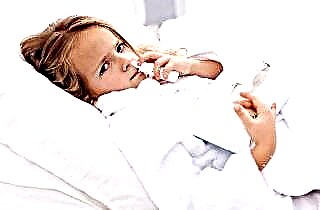 for rinsing the spout, the best means are: "Aquamaris", "Dolphin", "Aqualor" or furacilin solution;
for rinsing the spout, the best means are: "Aquamaris", "Dolphin", "Aqualor" or furacilin solution;- vasoconstrictor drugs will help to quickly stop a clear, profuse rhinitis: "Otrivin", "Naftizin", "Sanorin", "Vibrocil";
- antihistamines will help stop sneezing: Diazolin, Claritin, Tavegil, etc.
There is no need to use nasal drops with an antibiotic at the initial stage of the disease if the baby does not have fever. But as soon as the temperature begins to rise, or the discharge from the nose changes its color to yellow or green, an immediate consultation with a doctor is needed. This means that the means used do not help and it is necessary to adjust the treatment.
Usually, sneezing and runny nose in a baby disappear in about 5-6 days. And it is very important not to miss the signal that the disease is developing further.
If the infection penetrates deeper into the respiratory tract, it can cause serious diseases such as sinusitis, otitis media, bronchitis, bronchial asthma. And the uncontrolled use of antibiotics in children often causes multiple side effects.
Prevention measures
If a child has good immunity, sneezing and a clear runny nose without fever are not terrible for him. The body itself will cope with the disease, it can only be helped a little with multivitamin preparations or herbal decoctions. But if the baby sneezes and gets sick all the time, you need to pay close attention to preventive measures. Here's what to do regularly:
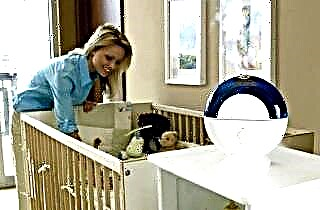 ventilate the child's room well and maintain moderate humidity in it;
ventilate the child's room well and maintain moderate humidity in it;- carry out high-quality wet cleaning of the room at least 2-3 times a week;
- walk more with the child in the fresh air, while dressing him in accordance with the weather conditions;
- pay attention to the location of the air conditioner in the room - the air stream should not fall directly on the child;
- the air conditioner must be subjected to preventive cleaning once a season;
- if the child sneezes often, then give him a warm drink - tea or herbal decoctions;
- ensure regular physical activity - active games, exercises;
- in the autumn-winter period, compensate for the lack of vitamins with multivitamin preparations;
- when there is a suspicion of a weakened immune system, use immunomodulators.
But if the child constantly sneezes, and the liquid snot has not passed, even despite the preventive measures you have taken, then you must definitely show him to the doctor and start seriously treating him.

 a respiratory infection that causes irritation and inflammation of the mucous membranes, fever, severe snot and other accompanying symptoms;
a respiratory infection that causes irritation and inflammation of the mucous membranes, fever, severe snot and other accompanying symptoms; Herbal baths (for feet or whole body). Can be done only if the child does not have a temperature or it does not exceed 37 0C. First you need to prepare the main broth. Birch leaves, calendula, sage, yarrow, celandine are suitable for him. Pour half a glass of dry leaves with a liter of boiling water in a thermos and leave for 2 hours. Strain and add to the bath, in which the child should lie down for 10-15 minutes. At the same time, he will breathe herbal fumes. After the bath, you can give him a drink of warm milk and put him to bed.
Herbal baths (for feet or whole body). Can be done only if the child does not have a temperature or it does not exceed 37 0C. First you need to prepare the main broth. Birch leaves, calendula, sage, yarrow, celandine are suitable for him. Pour half a glass of dry leaves with a liter of boiling water in a thermos and leave for 2 hours. Strain and add to the bath, in which the child should lie down for 10-15 minutes. At the same time, he will breathe herbal fumes. After the bath, you can give him a drink of warm milk and put him to bed. for rinsing the spout, the best means are: "Aquamaris", "Dolphin", "Aqualor" or furacilin solution;
for rinsing the spout, the best means are: "Aquamaris", "Dolphin", "Aqualor" or furacilin solution; ventilate the child's room well and maintain moderate humidity in it;
ventilate the child's room well and maintain moderate humidity in it;